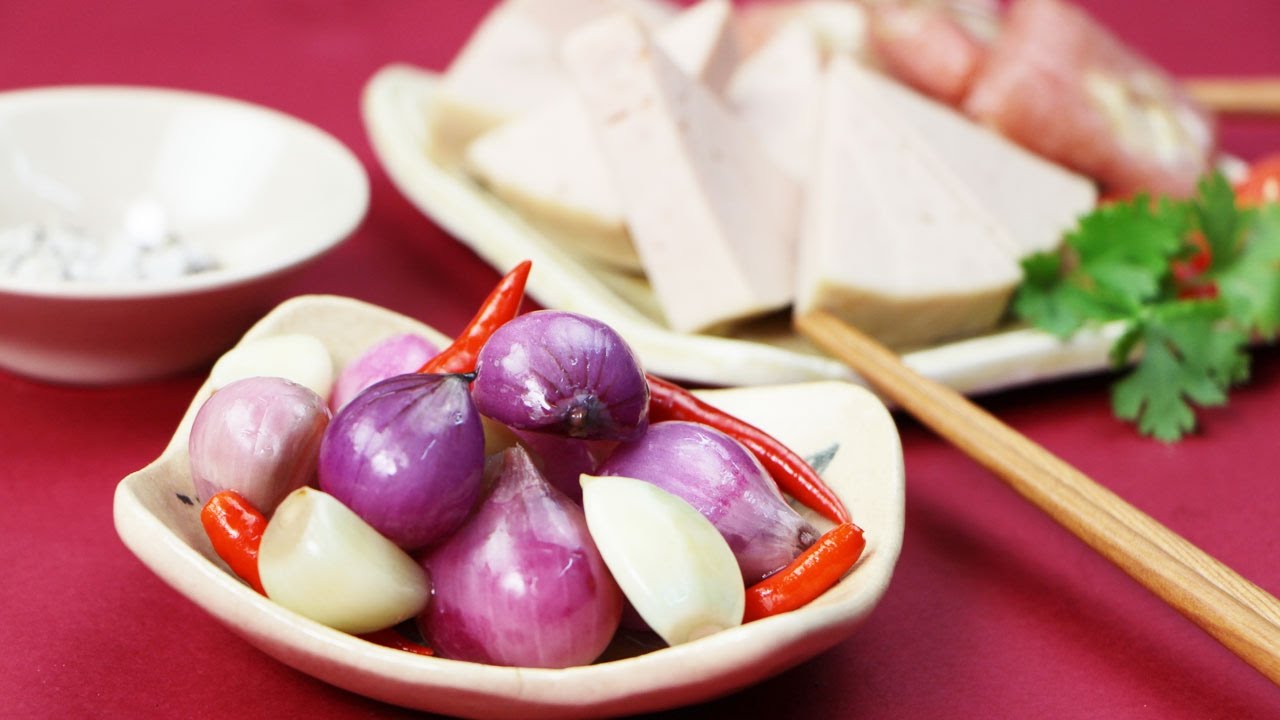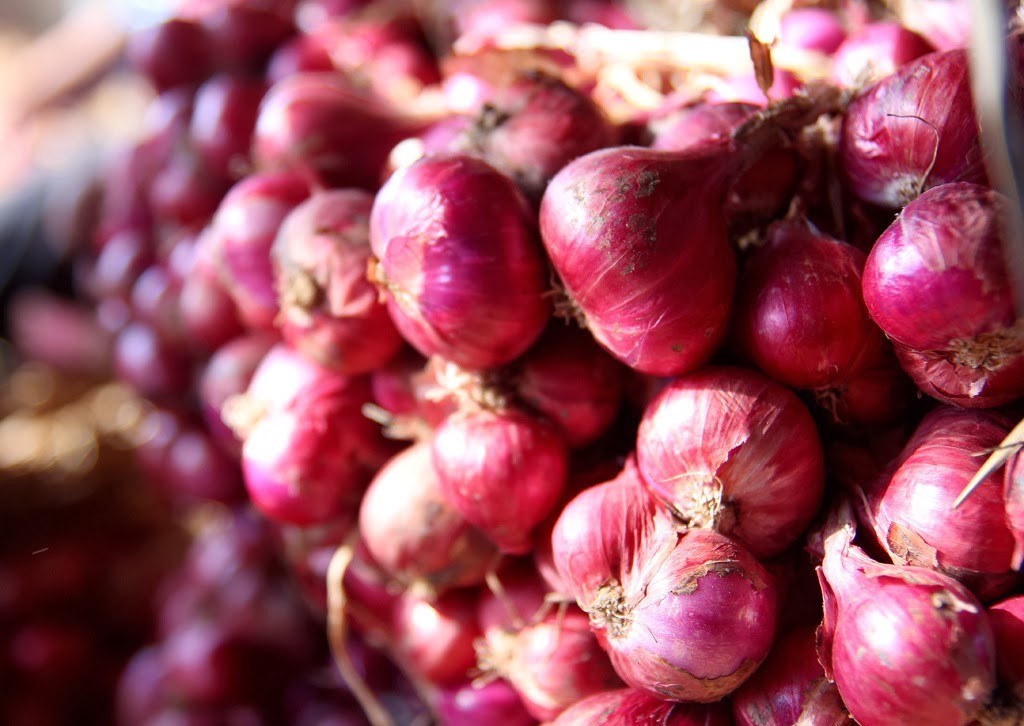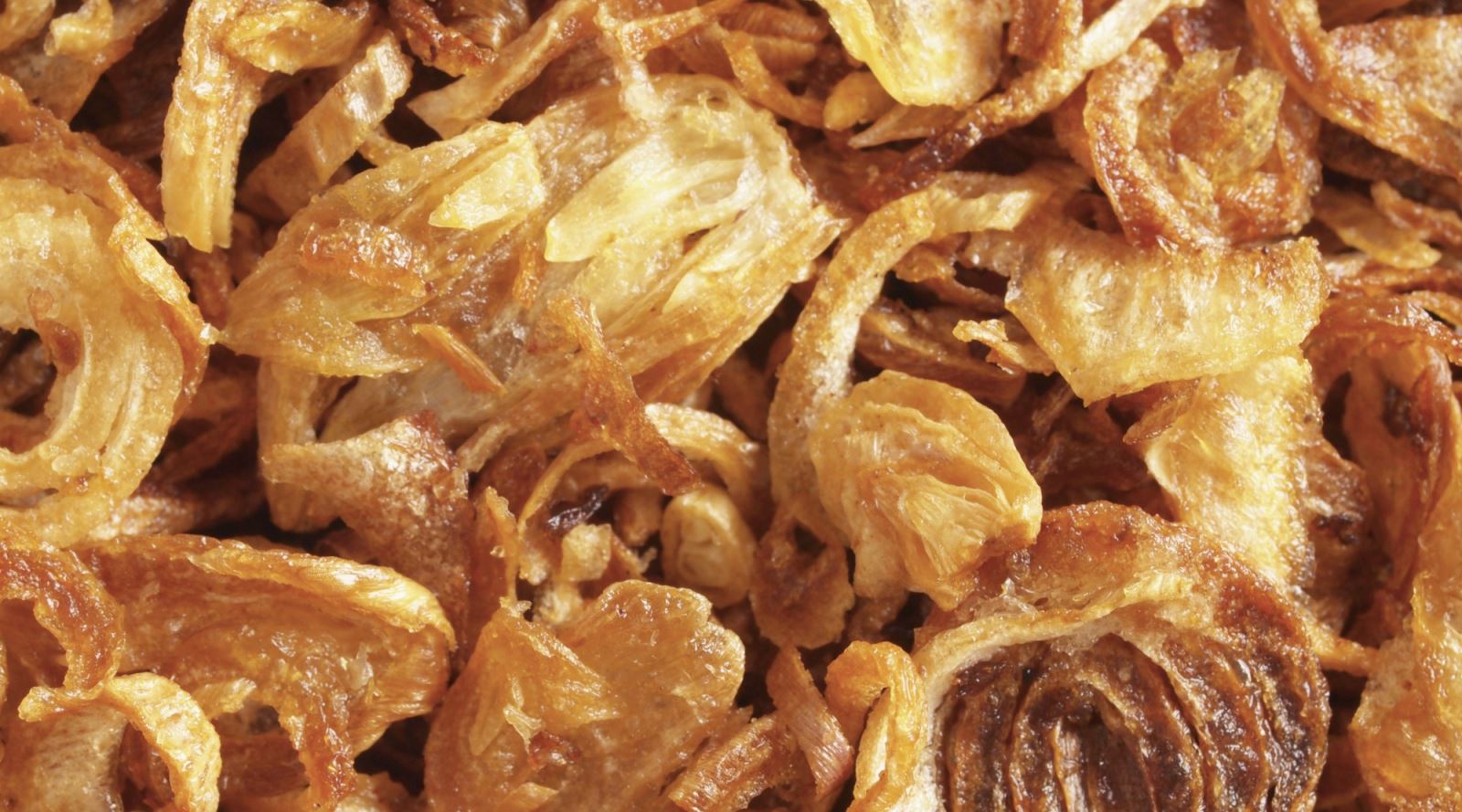What is a shallot most beneficial for?

Shallots pickled in vinegar.
Benefits of Shallots
1. High Source of Antioxidants
Are shallots better than onions in terms of their antioxidant health benefits? Even though used less often in recipes, they are thought to contain more flavonoid and phenol antioxidants than most other members of the onion family. This makes them one of the best anti-inflammatory foods for reducing free radical damage and fighting various chronic diseases. Two sets of compounds make up the majority of shallots’ known healing properties: sulfur compounds, such as allyl propyl disulphide (APDS), and flavonoids, such as quercetin. These compounds’ effects are primarily how both onions and garlic have benefits for reversing disease.
According to a report published in the Indian Journal of Experimental Biology, both onions and garlic contain protective sulfur-containing compounds mainly in the form of cysteine derivatives called cysteine sulfoxides. These wind up naturally decomposing when you eat them because they interact with your digestive enzymes, in the process producing beneficial compounds called thiosulfinates and polysulfide. These special decomposed products are considered valuable but delicate. They are mostly found in the oils of onions and garlic.
Because they hold the majority of sulfoxides, the oils of shallots (and other onions too) possess “antidiabetic, antibiotic, hypo-cholesterolaemic, fibrinolytic and various other biological actions.” This means they can help control blood sugar levels, help prevent insulin resistance, fight bacterial and viral infections, help lower cholesterol levels naturally, and prevent blood clots from forming. Other studies also show that allium veggies or herbs have anti-inflammatory and antimicrobial properties that benefit skin, blood vessels, digestive organs and muscle tissue.
You probably already know there’s a strong link between cancer prevention and your diet. Research published in the Asian Pacific Journal of Cancer Prevention in 2012 showed that ethyl acetate extracts (EEOs) found in shallots and other onions have potent inhibitory effects on animal fatty acid synthase (FAS) that help slow down the growth of cancerous cells. What is a shallot capable of helping with when it comes to cancer prevention? The ability to induce apoptosis, or self-destruction and death of dangerous cells, is well-researched in allium vegetables. This appears to be especially beneficial for fighting some of the most common types of cancers, including breast, stomach and colon cancers.
Results from one large case study indicate that consumption of allium vegetables may considerably reduce the risk of stomach cancer. The association was investigated in the Netherlands Cohort Study on diet and cancer, which started in 1986 and followed 120,852 men and women ranging in age from 55 to 69 years. A strong inverse association between onion consumption and stomach cancer incidence was found, and many other studies have found similar findings.
 |
2. Improve Heart Health
Onions’ many antioxidants, including allicin and quercetin, are considered anti-hypertensives. Based on human and animal studies, onions’ quercetin may reduce blood pressure. Allicin is a special and somewhat unique compound found in shallots, garlic and other onions that is released when you puncture their skin. According to a 2013 review done by the Department of Applied Biology at Hong Kong Polytechnic University, “Allicin was discovered to further protect the cardiovascular system by enhancing antioxidant status and lowering the level of reactive oxygen species and stimulating the production of glutathione.” Glutathione is often called a “master antioxidant” and known for powerfully improving health in multiple ways.
Allicin compounds can inhibit a certain reductase enzyme that is produced in the liver in order to make cholesterol. They help improve circulation and dilate blood vessels, which makes them a natural remedy for lowering high blood pressure. Onions can potentially help prevent atherosclerosis too, or a dangerous plaque buildup within the arteries. Onions are also known to fight inflammation, which is a leading cause of coronary heart disease, heart attacks and strokes.
Shallots are also a good source of potassium. Potassium helps regulate your body’s fluid levels and plays an essential role in nerve and muscle functioning, including one of your one most important muscles: your heart. Eating plenty of potassium-rich foods supports a healthy metabolism since this mineral is needed to break down carbohydrates into usable energy. Plus potassium is linked to cardiovascular health by way of helping lower high blood pressure and offsetting the effects of a high-sodium diet.
3. Might Help Fight Obesity
Some studies have found that EEOs present in shallots can also suppress lipid (or fat) accumulation and potentially help prevent obesity. Since obesity is closely related to heart disease, diabetes and cancer formation (obese patients are considered to be at an elevated risk of developing various cancers and other chronic diseases), onions might be useful for preventing both weight gain and obesity-related complications.
4. Help Prevent or Treat Allergies
Results from numerous studies have shown that shallots have promising anti-allergic effects that can be attributed to their anti-histaminic, anti-inflammatory and antioxidant activities. A 2009 study published in the Journal of Medicinal Food found that shallots and onions are effective for impacting various events responsible for allergic reactions.
When shallot extract was given to mice, they experienced a reduced histamine release and other benefits related to common allergy symptoms. A substantial reduction in lipid peroxidation within the lungs was found, and a higher level of protective antioxidant activity, especially superoxide dismutase activity, was also observed with lung tissue. This means that shallots and onions can help reduce symptoms of certain allergies.
5. Have Antibacterial and Antiviral Properties
Both shallots and garlic produce biochemical reactions that are known to fight infections, viruses and inflammation. When various immunological parameters of the shallot have been studied, researchers have found that the vegetable’s antioxidant enzymes (especially superoxide dismutase and glutathione peroxidase) help fight common illnesses and more serious infections, too. Onions have also displayed antifungal activity against various fungi in many studies, including candida. If you want to fight candida symptoms naturally, low-sugar, healing veggies like shallots should be at the top of your list.
Research has found that onions contain natural antibacterial activities that can help alkalize the body and fight even strong, potentially deadly forms of bacteria. Allicin found in the shallot, onions and garlic is also a powerful antimicrobial that offers protection against a wide range of bacteria, including some multidrug-resistant bacteria that are especially dangerous. Traditionally in India, shallots have also been used as a home remedy for sore throats (when mixed with sugar and gargled), bloating, infections and much more.
6. Help Maintain Strong Bones
As part of a large 2004 analysis of the National Health and Nutrition Examination Survey, pre- and post-menopausal adult females were observed to see what effects onion consumption had on bone density. The women were pided into those who consumed onions less than once a month, twice a month to twice a week, three to six times a week, and once a day or more. After controlling for factors like age, body mass index, and daily calcium or vitamin D intake, the researchers found that bone density increased as the frequency of onion consumption increased. Inpiduals who consumed onions once a day or more had an overall bone density that was 5 percent greater than inpiduals who consumed onions once a month or less.
Although this was a correlational study and doesn’t prove that onions improve bone health, onion consumption seems to have a beneficial effect on bone density. In addition, some research suggests that older women who consume onions most frequently might be able to decrease their risk of hip fracture by more than 20 percent, versus those who never consume onions.
7. Improve Circulation and Detoxification
Both shallots and garlic are thought to help remove carcinogens and toxins from the digestive tract thanks to their circulating-boosting abilities. According to traditional forms of medicine, something that tastes pungent on your tongue, including the shallot and garlic, are also thought to lower heat exhaustion and inflammation and prevent dehydration or overheating. This is one reason why onions are commonly eaten in many warm climate countries.
Onions can help stimulate digestive enzymes, heal the gut, lower oxidative stress within the digestive organs, and prevent inflammation associated with food allergies or sensitivities. They are also an effective ingredient for helping with liver detox.
8. Can Help Control Blood Sugar Levels
Onions are known to be natural anti-diabetics, since many studies have shown that they have beneficial effects on insulin and might also help control weight gain. Shallots and other alliums are thought to be a part of a diet that helps naturally treat diabetes since they have hypoglycemic-preventing effects that stimulate insulin secretions. This lowers inflammatory responses that are associated with diabetes and other autoimmune diseases.
According to researchers from the University of Michigan, eating large amounts of onions has been shown to lower blood sugar levels in people with diabetes, possibly by blocking the breakdown of insulin in the liver. APDS compounds in shallots have been shown to block the breakdown of insulin by the liver and possibly stimulate insulin production by the pancreas, which increases the amount of insulin within the blood and reduces glucose.
 |
You can see fried shallots garnished over many Vietnamese dishes including many rice dishes, hủ tiếu, vermicelli bún bowls with grilled pork, bánh cuốn, and bánh bèo just to name a few.
Shallot Recipes
What is a shallot used for mainly in recipes?
It’s considered a staple ingredient for adding nutrients, along with big flavor, to recipes around the world. For example, in India shallots are used in curries and different types of sambar, a staple lentil-based dish and shallots recipe. They are also commonly pickled in red vinegar to mellow out their “bite” a bit and then served along with sauces and papad on a mixed condiments tray.
In Iran, shallots, called mousir, are grated and mixed into dense-savory yogurt, which is served in almost every restaurant as a condiment for grilled kebabs. Throughout the Middle East and other parts of Asia, shallots are also pickled and used to make different types of sour side dishes consisting of a variety of vegetables soaked in vinegar. It’s common to find this type of dish in Iranian and Persian restaurants, for example.
In traditional Southeast Asian cuisines, including those of Vietnam, Thailand, Cambodia, Malaysia, Philippines and Indonesia, shallots and garlic are used together as spices and commonly eaten raw. They are usually paired with cucumbers when pickled in vinegar or sometimes fried in coconut oil to make crispy shallot chips.
Precautions
Most people can eat shallots and other onions without any side effects, although for some they might be hard to digest or cause interactions with certain medications. Higher intakes of onions may worsen existing heartburn or acid reflux, for example, although they don’t usually cause heartburn in people who do not already have it.
Onions and shallots are also foods that can worsen IBS-related symptoms for some people, since they contain FODMAP carbohydrates that have the potential to cause digestive issues when they aren’t properly broken down in the gut. If you have IBS and related symptoms like constipation or bloating frequently, it’s worth doing an elimination diet and seeing if removing common-culprit foods like garlic and onions can help.
There have also been a small number of reports of allergies to onions, including among people with asthma, skin rashes and red, itchy eyes. Onions and shallots are safe for children and during pregnancy or nursing, but again they have the potential to add to acid reflux, which is something you’ll want to monitor./.
( Jillian Levy )
Recommended
 Handbook
Handbook
Vietnam Moves Up 8 Places In World Happiness Index
 Handbook
Handbook
Travelling Vietnam Through French Artist's Children Book
 Multimedia
Multimedia
Vietnamese Turmeric Fish among Best Asian Dishes: TasteAtlas
 Handbook
Handbook
From Lost to Found: German Tourist Thanks Vietnamese Police for Returning His Bag
 Handbook
Handbook
Prediction and Resolution for the Disasters of Humanity
 Handbook
Handbook
16 French Films To Be Shown For Free During Tet Holiday In Vietnam
 Handbook
Handbook
Unique Cultural and Religious Activities to Welcome Year of the Snake
 Handbook
Handbook
